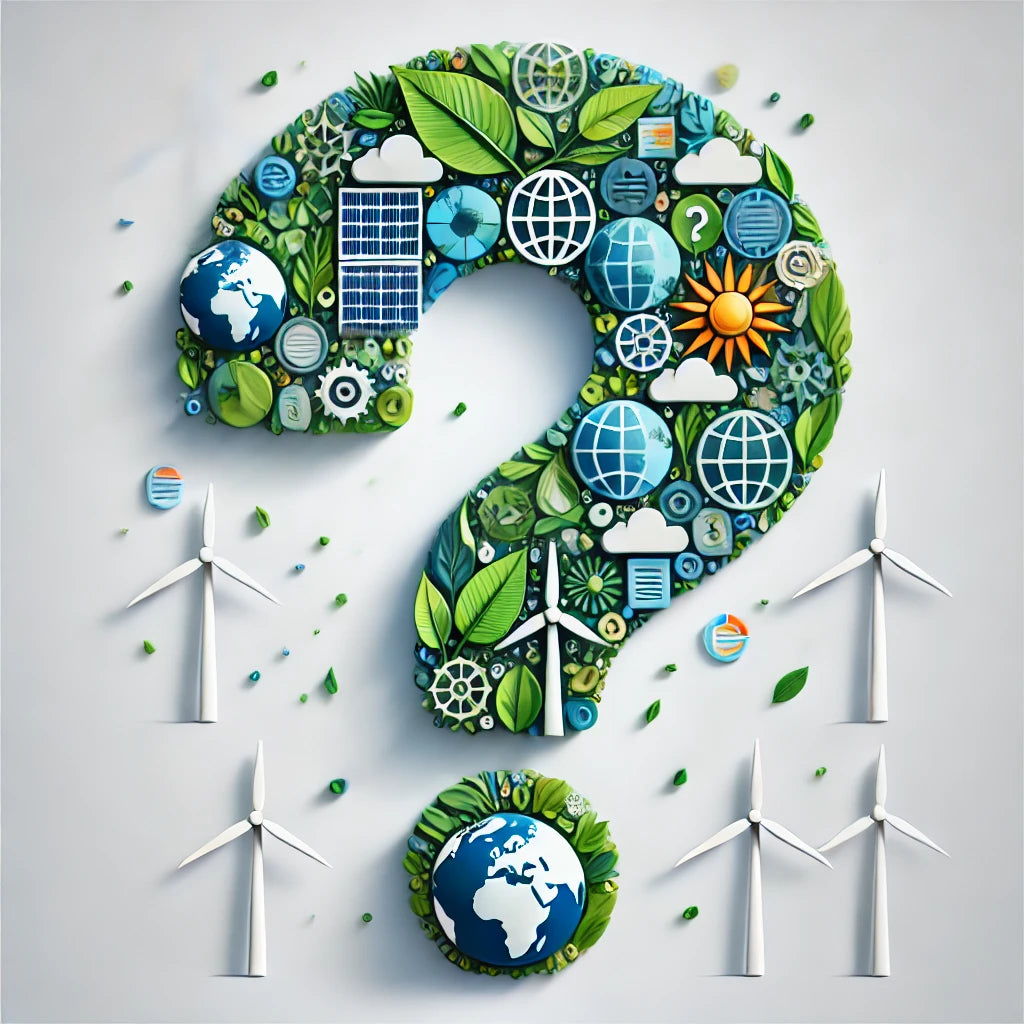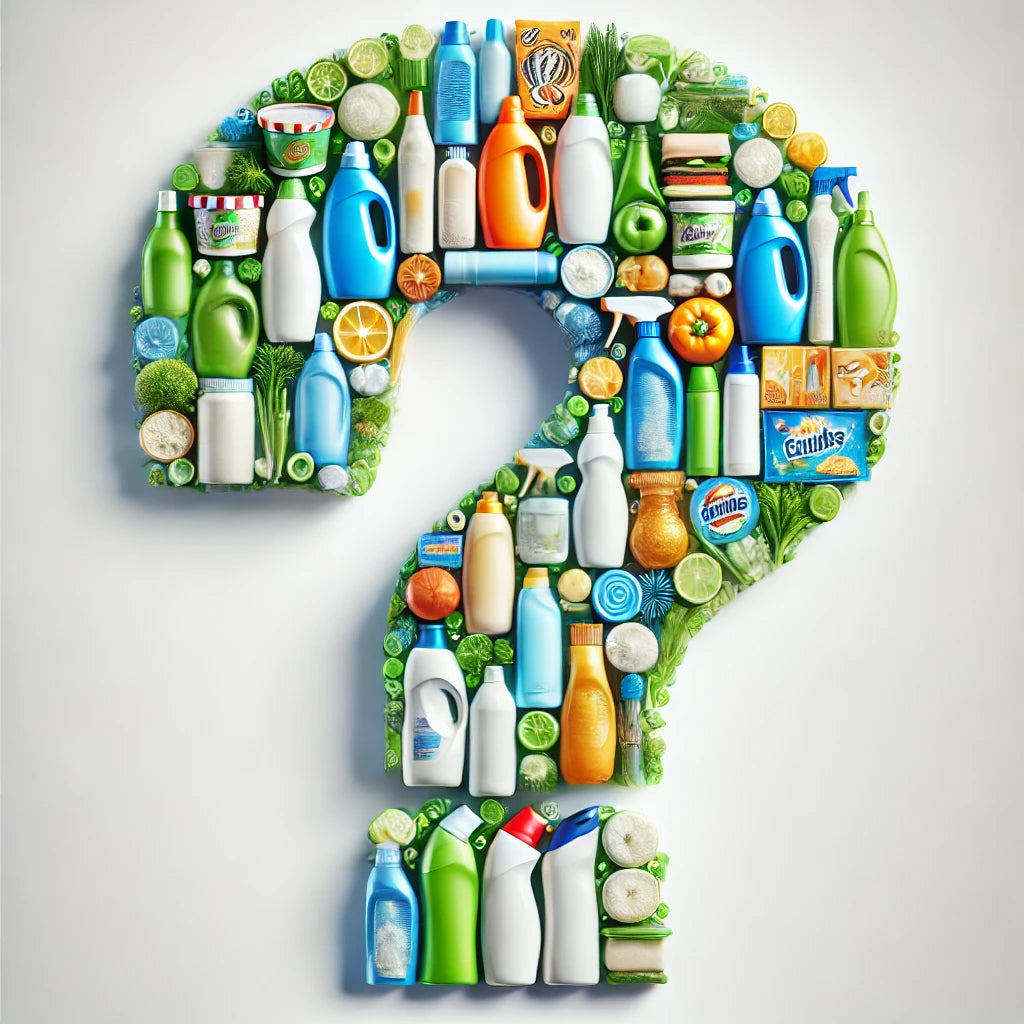Coca-Cola is one of the largest beverage companies in the world, known for its iconic drinks and vast global reach. In recent years, Coca-Cola has sought to position itself as a leader in sustainability, launching initiatives aimed at reducing plastic waste and promoting water stewardship. However, as the company remains one of the largest producers of plastic waste, questions arise about whether Coca-Cola’s environmental claims are genuine or just greenwashing. Let's take a closer look at their sustainability efforts to determine if Coca-Cola is truly green or merely masking its impact through clever marketing.
What is Greenwashing?
Greenwashing occurs when companies make themselves appear more environmentally responsible than they actually are. In Coca-Cola’s case, this might involve advertising sustainability initiatives while continuing to rely heavily on plastic packaging and contributing significantly to pollution. For a company the size of Coca-Cola, balancing profit and sustainability can be a challenge, and it’s crucial to examine if their initiatives match their claims.
Coca-Cola’s Sustainability Initiatives
Coca-Cola has launched several high-profile sustainability programs. One of the most notable is its World Without Waste initiative, which aims to collect and recycle one bottle or can for every one it sells by 2030. The company has also pledged to make 100% of its packaging recyclable by the same year. Additionally, Coca-Cola has committed to using 50% recycled content in its packaging by 2030.
Coca-Cola has also highlighted its water stewardship efforts, promising to replenish 100% of the water it uses by supporting local water restoration projects. These goals are ambitious and demonstrate that Coca-Cola recognizes the environmental impact of its products. But do these initiatives align with the reality of Coca-Cola’s practices?
The Positive Moves
Coca-Cola has made some commendable efforts in the realm of sustainability:
- Recycling Commitments: Coca-Cola’s push to collect and recycle the equivalent of every bottle or can it sells is a bold and important goal, and they have made progress toward this. Their emphasis on recycling infrastructure is a key part of reducing waste.
- Plant-Based Bottles: The company has introduced a "PlantBottle," which is made partially from plant-based materials and is fully recyclable. This represents a step toward more sustainable packaging alternatives.
- Water Stewardship: Coca-Cola’s commitment to replenish the water it uses in its production processes is a significant environmental focus, especially in water-stressed regions. Their support of water restoration projects around the world indicates some level of accountability for their water usage.
These efforts are not insignificant and suggest that Coca-Cola is serious about tackling some of the major environmental challenges it faces. But are these initiatives enough to counter the enormous environmental footprint of such a large company?
The Contradictions and Concerns
Despite Coca-Cola’s progress in certain areas, there are significant concerns that cast doubt on the effectiveness of their sustainability efforts:
- Plastic Pollution: Coca-Cola remains the world’s largest plastic polluter. Despite their recycling initiatives, the company produces over 100 billion plastic bottles every year, most of which are single-use. While Coca-Cola claims that its packaging is recyclable, the reality is that much of this plastic waste ends up in landfills or the ocean, as recycling systems in many parts of the world are inadequate. This creates a major discrepancy between the company’s promises and its actual impact.
- Recycling Limitations: Although Coca-Cola promotes recycling as a solution, critics argue that this places too much responsibility on consumers rather than addressing the root issue of overproduction. Recycling systems are often inefficient, and much of the plastic that Coca-Cola produces will not be recycled, even if it's technically recyclable.
- Water Usage: Coca-Cola has made significant strides in water stewardship, but its operations in water-stressed regions remain controversial. Critics argue that the company’s water use, particularly in developing countries, often exacerbates local water shortages. While Coca-Cola replenishes water through restoration projects, this does not always offset the damage caused by its bottling plants.
Greenwashing or Genuine Change?
Coca-Cola’s sustainability initiatives, while ambitious, often feel like they are overshadowed by the sheer scale of the company’s environmental impact. While it’s clear that Coca-Cola has made efforts to address its role in plastic pollution and water management, the contradictions between its promises and its actual practices suggest that these initiatives may not be enough. In some cases, the company’s sustainability claims appear to serve more as a marketing tool than as a reflection of genuine environmental change.
The company’s reliance on plastic, combined with the inefficiencies of recycling systems, suggests that Coca-Cola’s commitment to sustainability is not as strong as it needs to be. Despite promoting a "World Without Waste," Coca-Cola’s business model is still deeply tied to single-use plastic, raising doubts about whether they can achieve their ambitious goals.
So, Is Coca-Cola Greenwashing, Greenwishing, or Greenhushing?
When evaluating Coca-Cola’s sustainability efforts, the company seems to exhibit elements of greenwashing, greenwishing, and greenhushing. Coca-Cola has made notable strides in areas like water stewardship and sustainable packaging, but its reliance on single-use plastics and the limited effectiveness of recycling systems raise concerns. These contradictions suggest greenwashing, where their environmental claims are overshadowed by the scale of their plastic pollution. At the same time, their ambitious future goals may reflect greenwishing—a desire to be more sustainable, but without sufficient current action to match. Moreover, Coca-Cola tends to downplay the full environmental cost of their operations, pointing to some greenhushing as well. To move forward, Coca-Cola must make more concrete changes in line with their promises to avoid being labeled as merely marketing-driven.
Sources:
Greenpeace: Coca-Cola and Plastic Pollution https://www.greenpeace.org/international/story/20760/coca-cola-worlds-largest-plastic-polluter/
Reuters: Coca-Cola’s World Without Waste Initiative https://www.reuters.com/business/sustainable-business/coca-cola-recycle-bottle-waste-pledge-2020-02-17/
The Guardian: Coca-Cola’s Environmental Impact https://www.theguardian.com/environment/2021/mar/05/coca-cola-plastic-pollution-recycling



